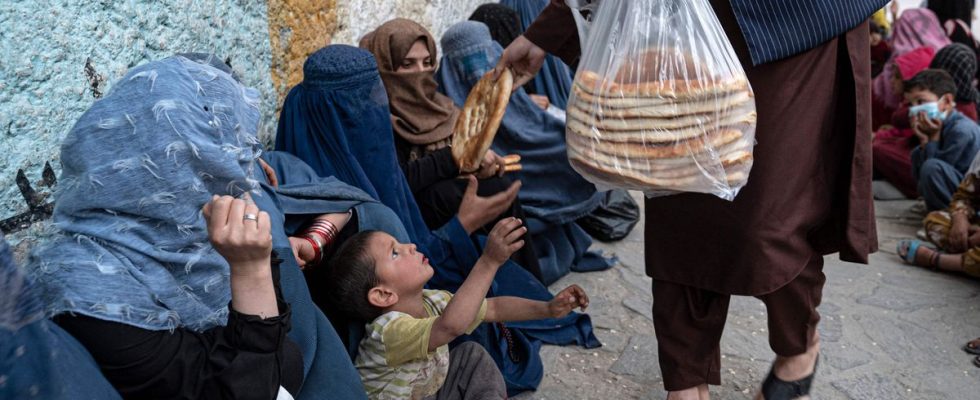The return of the Taliban to power in Afghanistan has worsened the country’s economic situation. The number of poor Afghans has almost doubled between 2020 and the end of 2022, to reach 34 million, according to estimates released Tuesday by the UN. Since taking power in August 2021, Afghanistan’s economic output has collapsed by 20.7%, the latest report from the United Nations Development Program (UNDP) says. “This unprecedented shock has kept Afghanistan among the poorest countries in the world,” he said.
According to the document, which covers data collected up to last September, Afghans below the poverty line were estimated at 34 million at the end of 2022, compared to 19 million in 2020. There is no recent census data in Afghanistan. , but the United Nations estimates the population at 40 million, which means that 85% of the country lives in poverty.
Weak recovery prospects
In 2022, Afghanistan’s GDP will decline by 3.6%, according to the study’s estimates. “A sustained influx of foreign aid, to the tune of $3.7 billion in 2022, has averted the total collapse of Afghanistan,” said UNDP Representative in Afghanistan Abdallah Al in a statement. Dardari, who warns of a drop in foreign aid this year.
In 2023, Afghanistan’s GDP could increase by 1.3% if the level of foreign aid is maintained. “However, the prospects for economic recovery remain weak and insufficient in the long term, particularly if foreign aid is suspended due to the restrictive policies of the Taliban,” the report warns. The UN’s 2023 appeal for Afghanistan has so far raised just 5% of its $4.6 billion target. “If foreign aid is reduced this year, Afghanistan risks falling from the edge of the cliff into the abyss,” said Abdallah Al Dardari.
draconian measures against women
Since their return to power, the Taliban have multiplied draconian measures against women who, for example, no longer have the right to study beyond primary school. In December, the government also banned Afghan women from working for NGOs before extending the measure to the UN in April.
“Decrees restricting the rights of women and girls, including a directive prohibiting Afghan women from working for the United Nations, directly affect economic productivity and may also affect the level of aid,” the report warns. . “There will be no lasting recovery without the active participation of Afghan women in the economy and in public life,” warned Kanni Wignaraja, UNDP Regional Director for Asia and the Pacific.

